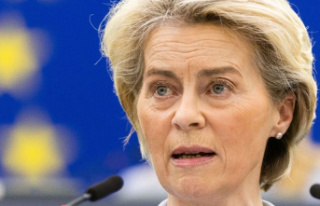Almost a third of 15 to 24-year-olds in Germany no longer lived with their parents in the past year. A total of around 2.6 million people in this age group have already moved out, as the Federal Statistical Office announced on Monday in Wiesbaden. This corresponds to a share of 31.2 percent. Ten years earlier it was 2.4 million (27.5 percent).
According to the data, the sons still take a little more time than the daughters when moving out: 27.6 percent of the young men between the ages of 15 and 24 recently no longer lived in the "Hotel Mama", among the young women it was 35, 1 percent. Ten years ago the difference was even greater – at that time 22.3 percent of men and 33.0 percent of women no longer lived under the same roof as their parents.
The Federal Office also published Europe-wide figures: young people in Germany moved out at the age of around 24 on average – on average around three years earlier than the EU average. According to this, the Swedes moved out the earliest – they left the parental home at the age of 19 on average. The Portuguese stayed with their parents the longest (around 34 years).
According to the Federal Statistical Office, the number of young parents in Germany has fallen significantly over the past ten years. Only 2.4 percent of 15- to 24-year-olds had children in 2021 - i.e. 197,000 young fathers or mothers in this age group. In 2011 there were still 327,000 young fathers or mothers (3.7 percent).
Furthermore, according to the Federal Statistical Office, the young people married much less frequently. The number has declined almost continuously in recent years. At the end of 2021, a new low of around 136,000 married 15 to 24 year olds was reached. Ten years earlier, more than 246,500 people in this age group were married or in a civil partnership.
The Federal Office published the data on the occasion of the "European Year of Youth", which the European Union has proclaimed for 2022. It aims to give young people a better voice with their opinions and ideas.












